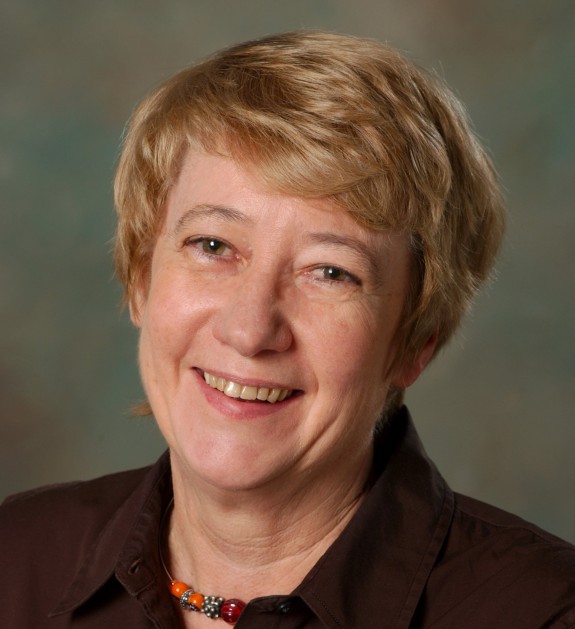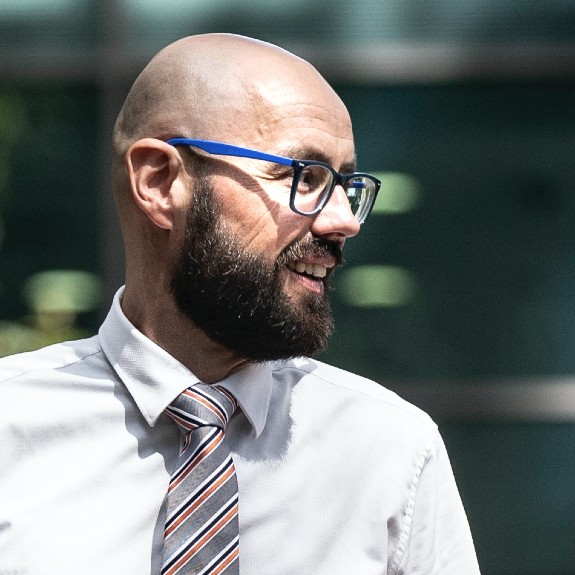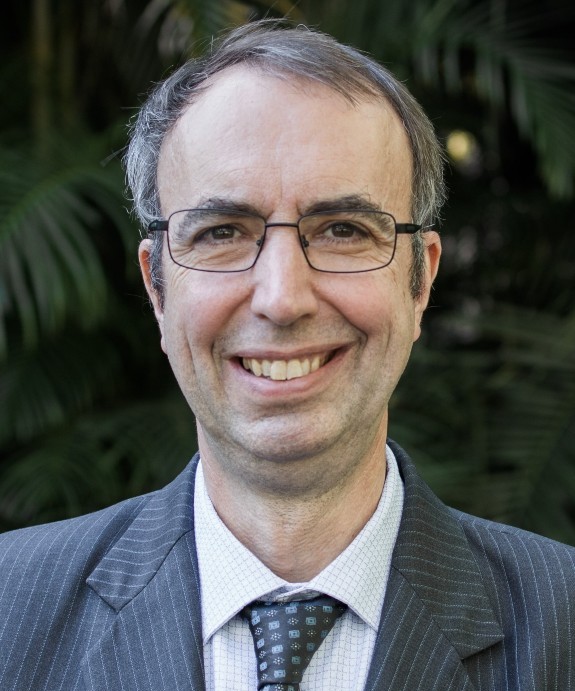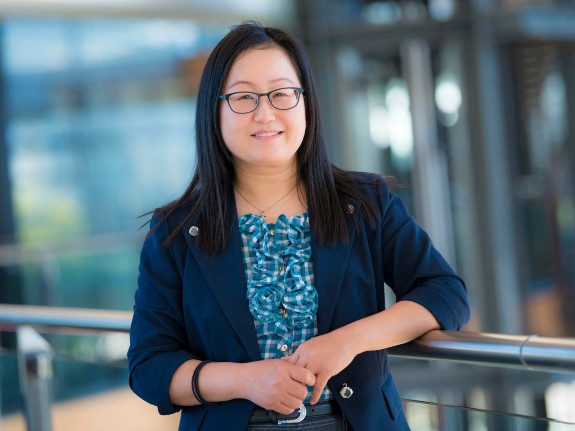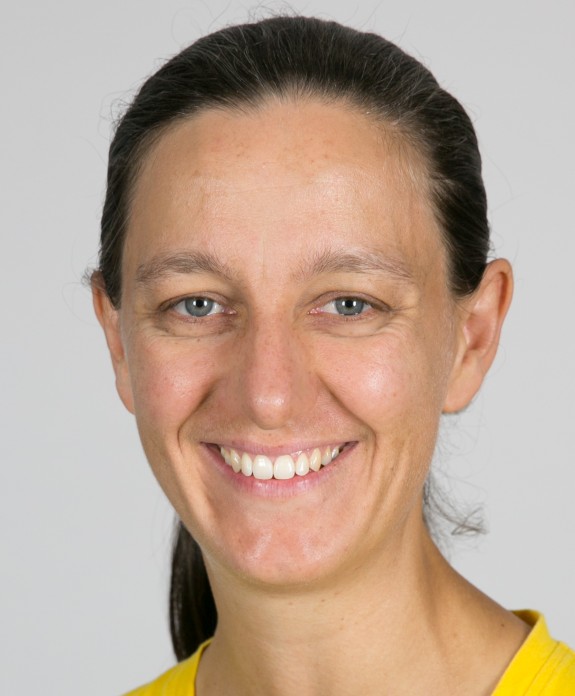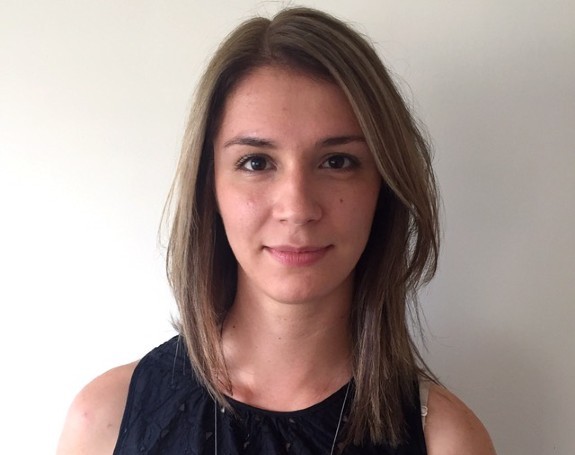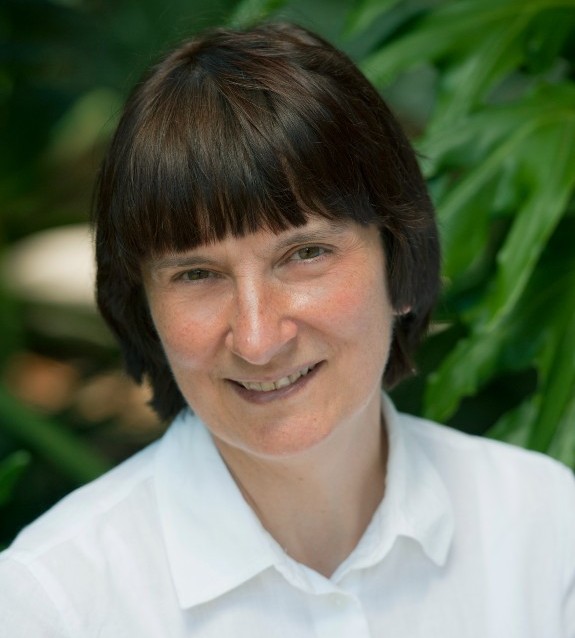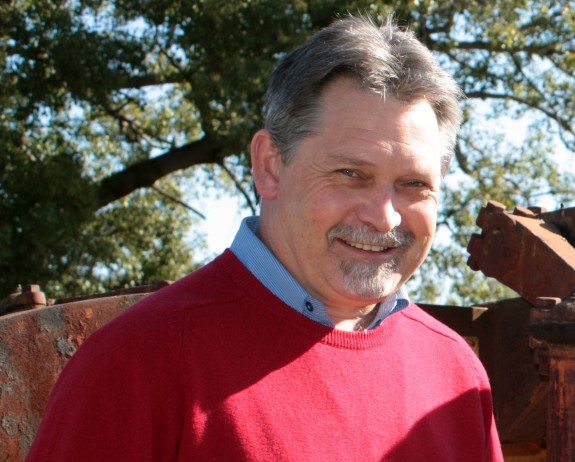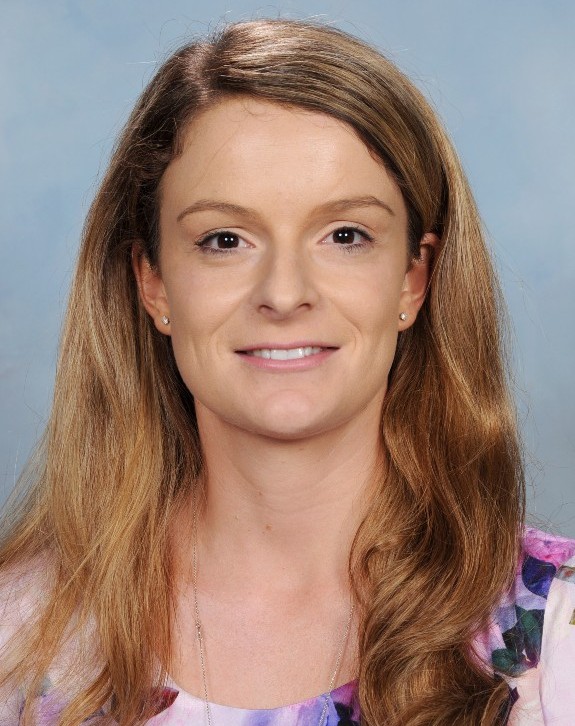Category 1: Excellence in Mathematics, Earth Sciences, Chemistry or Physics
Distinguished Professor Sue O’Reilly AM
FAA FMSA FGSAu FRSN DHC
Macquarie University
Distinguished Professor Sue O’Reilly’s research is enabling the discovery of critical metals, including rare-earths, nickel, copper and platinum group elements hidden deep underground in Australia and globally.
By analysing zircons found on the surface she has produced a tool for identifying deep mineral deposits. The tool, patented as TerraneChron®, is being used by mining giants including BHP-Billiton, Anglo American, Codelco, Vale and Rio Tinto to significantly speed up exploration and detection.
Sue’s approach combines geochemistry, geophysics, geodynamic modelling and geology, and has revealed the structure and history of previously inaccessible regions as deep as 400 kilometres. This pioneering integration – now widely adopted – profoundly changed scientific understanding of the planet’s crust and mantle, including the process of ore-formation. It also created a new discipline, known as “4-D Lithosphere Mapping”.
Since 1995 Sue has led two ARC research Centres (a National Key Centre and a Centre of Excellence), working with more than 300 researchers, mineral industry practitioners and manufacturing-industry partners.
As Chair of the Australian Academy of Science’s National Committee for Earth Sciences, Sue led the writing of the 2018 Decadal Plan for Geoscience. She serves on expert panels for the ARC and provides advice and submissions to Chief Scientists and governments.
Sue is a Fellow of the Australian Academy of Science and was awarded an Order of Australia (OAM) “for significant service to the earth sciences”. During her 40-year tenure at Macquarie University, she has produced more than 450 journal papers, which have attracted over 45,000 citations. She has edited eight journal volumes and collaborated with more than 130 scientists.
Category 2: Excellence in Biological Sciences (Ecological, environmental, agricultural and organismal)
Professor Ian J. Wright FAA
Macquarie University
Professor Ian Wright has made major contributions to plant science research, nationally and internationally. He is best known for global-scale analysis of plant traits, for careful quantification of plant structure-function relationships and for using concepts from economics to understand plant ecology and evolution.
His concept of a Leaf Economic Spectrum (LES) has become standard in textbooks covering plant ecology, physiology and ecological climatology. It describes coordination in carbon and nutrient investments in leaves, and the rates and durations of photosynthetic returns on those investments.
Both the LES and ‘least-cost theory’ – concerning co-optimisation of nitrogen and water costs for photosynthesis – are now embedded in global vegetation production models, providing a more robust theoretical basis for these important tools. In recent work Ian and colleagues twinned fresh theory with empirical analysis to build a new narrative for the evolution of leaf size variation across the world’s species.
Ian’s work underpins the ability of scientists to ask novel, high-priority questions: Which plants will be winners and losers in NSW after climate change? How will our forests change and how will that affect fire risk? What Australian species have useful properties for crop improvement under future warmer and drier climates?
Ian was awarded the 2015 Fenner Medal by the Australian Academy of Sciences and elected a Fellow of the Academy in 2019. He has co-authored 135 papers in peer-reviewed journals, including Nature and Science, with more than 39,000 citations. The original LES paper, published in Nature in 2004, has been cited more than 5,600 times.
Category 3: Excellence in Medical Biological Sciences (Cell and molecular, medical, veterinary and genetics)
Joint Winner
Distinguished Professor Antoine van Oijen
University of Wollongong
Biomolecular physicist Professor Antoine van Oijen is a pioneer in the visualisation of biological processes at the single molecule level. Since moving to Australia as an ARC Laureate Fellow, he has developed a research program that has transformed our understanding of how bacteria copy and repair their DNA and how these processes play a role in the development of drug resistance.
With the increased use of antibiotics in health care and agriculture, antimicrobial resistance is one of the greatest health challenges facing humanity. Without a solution, antibiotic resistance is predicted to eclipse mortality caused by cancer and heart disease within decades.
Antoine’s research has attracted significant national and international funding to understand antimicrobial resistance at a molecular level and investigate the impact of antimicrobial resistance on the community.
He has brought together interdisciplinary researchers from multiple institutions, including universities and health care providers to tackle this challenge. This approach includes a community-based research and awareness program involving the university, local health district, major pathology companies and regional community health-care workers to trace antimicrobial resistance and understand the impact of our use of antibiotics. His program is now nationally recognised as an exemplar for its whole-of-community-based approach to this challenge.
In parallel, building on his philosophy of using visualisation tools to understand disease, Antoine has led an $80 million University of Wollongong investment to establish a world-class molecular life sciences institute, Molecular Horizons, providing a unique opportunity to apply interdisciplinary research to tackle the world’s most pressing health challenges.
Before moving to Australia, Antoine led research labs in Europe and the USA, including at Harvard University. He has received prestigious fellowships from the US National Science Foundation, the European Research Council, the Australian Research Council and the National Health and Medical Research Council. He has published over 150 papers, resulting in more than 1,000 citations per year and an h-index of 52.
Category 3: Excellence in Medical Biological Sciences (Cell and molecular, medical, veterinary and genetics)
Joint Winner
Professor Merlin Crossley
UNSW Sydney
Professor Merlin Crossley’s fundamental work in gene regulation has recently revealed a new approach to treating important inherited blood disorders, such as Sickle Cell Anaemia and Thalassemia. These are the world’s most prevalent single gene defects, with more than 400,000 people affected. Developing treatments to these lifelong conditions will both help patients and reduce the burden on health services.
In 2015 Merlin published a landmark paper in Nature Communications illustrating how CRISPR-mediated genome editing could introduce naturally occurring beneficial variants to treat these diseases. This is considered preferable to conventional gene therapy that involves introducing foreign genetic material.
Merlin’s subsequent papers in Science 2016, Nature Genetics 2018, and in Blood 2017 and 2019 have demonstrated that disrupting the repressor sites that he identified could boost globin expression to alleviate symptoms. A new paper in Nature Communications in 2020 provided more data on epigenetic switches and gene control.
Labs around the world are trialling the new approach and Merlin is now collaborating with a major international biotechnology company and with researchers in the US intent on translating this approach into the clinic.
Importantly, Merlin also contributes to science in NSW via leadership and advocacy as an Australian Museum Trustee, Chair of The Conversation’s Editorial Board, Chair of UNSW Press, Deputy Director of the Australian Science Media Centre, and as a senior university leader and teacher.
Merlin has published 140 papers and his work has been cited more than 10,500 times (h-index 56).
Category 4: Excellence in Engineering or Information and Communications Technology
Distinguished Professor Zaiping Guo
University of Wollongong
Distinguished Prof Zaiping Guo is a materials scientist with an exceptional track record in her field, which focuses on the applications of nanomaterials in energy storage and conversion technologies.
Zaiping’s research is devoted to identifying the practical, physical and chemical properties of nanomaterials that can be used to improve the performance of energy storage devices, and batteries in particular.
Her research involves the development of next generation batteries that are safe, clean, high performing and low cost, with the aim of finding the most promising large-scale electrical energy storage solutions using renewable energy sources.
Zaiping’s approach has included developing new nanoscale electrode materials to use in sodium–ion batteries, aqueous rechargeable zinc batteries and lithium ion batteries. Her research has led to significant collaborations with other university researchers and industries in NSW and offers enormous potential for applications in future green energy use in NSW, reducing our dependence on fossil fuels, and facilitating a more sustainable state and nation.
Zaiping is an ARC Future Fellow with an outstanding record of continuous competitive funding for her research, including multiple ARC grants. The impact of her work is illustrated by her exceptional publication record: 469 publications, an h-index of 87, over 25,500 citations and a Field-Weighted Citation Index of 3.19.
Zaiping’s influence has been formally recognised through her inclusion on the ISI Highly Cited Researchers list two years in a row (2018, 2019).
Category 5: NSW Early Career Researcher of the Year (Biological Sciences)
Dr Rachael Gallagher
Macquarie University
Ecologist Dr Rachael Gallagher is playing a critical role in the recovery of Australian plant species impacted by the devastating 2019-2020 bushfire season. More than 80 per cent of Australia’s plant species occur nowhere else on Earth and their protection and recovery post-fire is a matter of global importance for biodiversity.
Rachael has a long-standing interest in understanding the diversity and function of the Australian flora. In her research, she uses data science approaches to combine location data from digitised herbarium specimens with information on their functional traits, to map and analyse patterns of plant diversity.
Rachael has driven the creation of the AusTraits database – a repository of ecological knowledge on the traits of Australia’s plants. This ever-growing collection will allow researchers to easily access a wealth of information on native plants.
AusTraits was a critical tool earlier this year when Rachael was engaged directly by the Federal Threatened Species Commissioner to assess the impact of the unprecedented fire season on plants. She was able to rapidly prioritise species and ecosystems badly impacted, using criteria developed by leading NSW government scientists.
Her results are the only nationally comprehensive prioritisation of plants affected by the fires, assessing all the approximately 26,000 native Australian species. These results are being used to inform national recovery grant allocations and the process of listing at-risk species under state and commonwealth legislation.
Rachael is an ARC DECRA Fellow and Deputy Chair of the NSW Threatened Species Scientific Committee. She has co-authored 48 peer-reviewed journal articles and book chapters, including papers in Nature - Ecology and Evolution, and Science. Her work has been cited 3,691 times. She has an h-index of 23.
Category 6: NSW Early Career Researcher of the Year (Physical Sciences)
Dr Jelena Rnjak-Kovacina
UNSW Sydney
Dr Jelena Rnjak-Kovacina is an emerging leader in the field of biomedical engineering. Her research aims to develop novel therapeutic solutions for the treatment of cardiovascular disease.
Cardiovascular disease is the leading cause of mortality worldwide and affects over 1.2 million Australians. There is currently no effective treatment for the damage to the heart tissue caused by myocardial infarction, or the heart attack. Implantable biomaterial and bioengineered tissue grafts such as cardiac patches are a potentially revolutionary therapeutic option, but their use is currently limited by a lack of vascular supply.
Jelena has made major contributions toward the development of functional cardiovascular implants by engineering silk biomaterials that rapidly vascularise when implanted. Her work aims to understand the physical and biological cues that contribute to implant vascularisation and translate these to effective therapies.
The innovation and quality of Jelena’s research and leadership in the field have been recognised through:
- Grant funding, including a prestigious Heart Foundation Future Leader Fellowship
- Election to boards of leading bodies in the field, including the Australasian Society for Biomaterials & Tissue Engineering (ASBTE) and the Australian Cardiovascular Alliance Bioengineering Flagship
- Invitations to present her work at top domestic and international conferences
- Accolades, including a NSW Young Tall Poppy Science Award and the ASBTE Emerging Leader Award.
Jelena is a keen contributor to research training and STEMM (Science, Technology, Education, Mathematics and Medicine) communication in the wider community.
Her work has thus far resulted in 48 peer-reviewed articles in top international journals in the field (2,600 citations, h-index 24).
Category 7: Leadership in Innovation in NSW
Professor Ewa Goldys
FOSA FTSE FSPIE FRSN
UNSW Sydney
Professor Ewa Goldys is a world leader in the applications of light and fluorescence to biomedicine, nanotechnology and advanced materials.
Ewa’s discovery of non-invasive fluorescent diagnostics of native colours and shapes in cells and tissues was recognised in 2016 with a Eureka Prize for Innovative Use of Technology.
This big data driven technique is capable of recognising cancer margins, diabetic complications, neurodegenerative motor neuron disease and fertilisation potential in reproductive medicine.
Ewa’s technique allowed cattle breeders to predict successful pregnancy in cattle with 96 per cent accuracy, an improvement of over 10 per cent compared to state-of-the-art methods. This breakthrough has enabled breeders to employ embryo transfer to obtain consistently higher value calves with high quality genetics, resulting in calves valued $600 higher than those produced through conventional mating or artificial insemination.
Ewa leads major research initiatives, including as Deputy Director of the $40 million ARC Centre of Excellence for Nanoscale BioPhotonics, and as a leader of the $15 million SHARP team at UNSW Sydney.
Internationally, Ewa is a Fellow of the Society for Optics and Photonics (SPIE) and the Optical Society, who recognised her “for research leadership in optical characterization and biomedical sensing that has promoted widespread interdisciplinary awareness of light in life sciences”.
Ewa’s leadership has consolidated the optics and biomedical communities establishing internationally prominent biophotonics research in Australia.A role model for women in senior leadership, Goldys has mentored more than 30 early career researchers.
Ewa has a distinguished publication track record with a total of 329 publications, which have attracted more than 7,800 citations (h-index 43).
Category 8: Innovation in NSW Public Sector Science and Engineering
Dr David Hopkins
NSW Department of Primary Industries
For 29 years, Dr David Hopkins has worked for the Department of Primary Industries to deliver beneficial outcomes to the wider community of NSW.
David’s reputation in his field of meat science goes well beyond NSW to the national and international arena. David’s research has focused on improving the consistency and quality of red meat. This work addresses the NSW DPI Goal to increase the value of Primary Industries in NSW.
An example of the significance of David’s work is demonstrated through the lamb meat sector, which has undergone major changes in focus to provide consumer acceptable products of high quality. David’s research has significantly contributed to these changes and the industry is now worth in excess of $3.9 billion.
This impact cannot be understated. David’s deep knowledge of meat quality and its structure has supported the development of many innovative technologies, including VIASCAN® for objective carcass evaluation and New Generation Electrical Stimulation and SMARTSTRETCH™/ SMARTSHAPE™ for the improvement of meat.
The quality of David’s work is exemplified by the requests he receives to author internationally renowned books in meat science. David has held appointments as an Associate Editor for three journals, been an Editorial Board Member of four journals and is the first Australian Editor-in-Chief of the international journal Meat Science.
David holds academic positions in Australia and overseas and has supervised post-graduate students across the globe. His publication record includes more than 750 scientific journal papers, chapters and technical/extension papers. He has received over 9,394 citations (Google Scholar) and has a Google Scholar h-index of 51 and a Web of Science h-index of 39.
Category 9: Innovation in Science, Technology, Engineering or Mathematics Teaching in NSW
Sophie Poisel
Emanuel School
Sophie Poisel is passionate about fostering curiosity in science, technology, engineering and mathematics (STEM) and empowering her students to see how STEM skills enable them to design and create a better world.
Sophie was a recipient of the 2018 Premier’s Commonwealth Bank Teacher Scholarship for STEM and spent five weeks visiting leading schools and universities across North America. Inspired by her experience, Sophie has implemented innovative teaching practices in her school, both within and beyond the curriculum.
Within the curriculum, Sophie has worked collaboratively with K-6 teachers to develop interdisciplinary units of inquiry that focus on real-world problem solving, and building students’ skills in Scientific, Systems, Computational and Design Thinking. She has connected industry experts with teachers to inspire students to pursue and maintain interest in STEM areas.
Beyond the curriculum, Sophie has worked with groups of students on projects related to personal passions or competitions. She designed and piloted an effective after-school program to develop students’ interest, confidence and aspirations in STEM. The program sought to break the stereotypes of what a scientist looks likes, and what working in a STEM field involves, through connections with STEM experts. These projects have served to motivate and raise the profile of STEM.
Sophie has spent the past two years creating and adapting the Primary Imaginarium. She has done extensive research to design the most effective space to encourage the exploration of scientific concepts through play, experimentation and tinkering.
Beyond the school, Sophie has taken opportunities to share her expertise by presenting at multiple conferences. Having been awarded a Google grant, Sophie designed and led a team to organise the DigiTech Deep Dive conference for primary school educators, providing excellent networking and shared learning opportunities.
